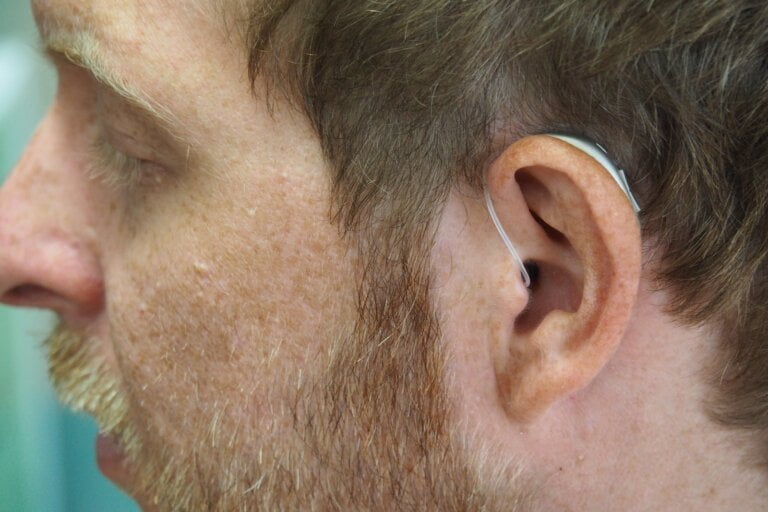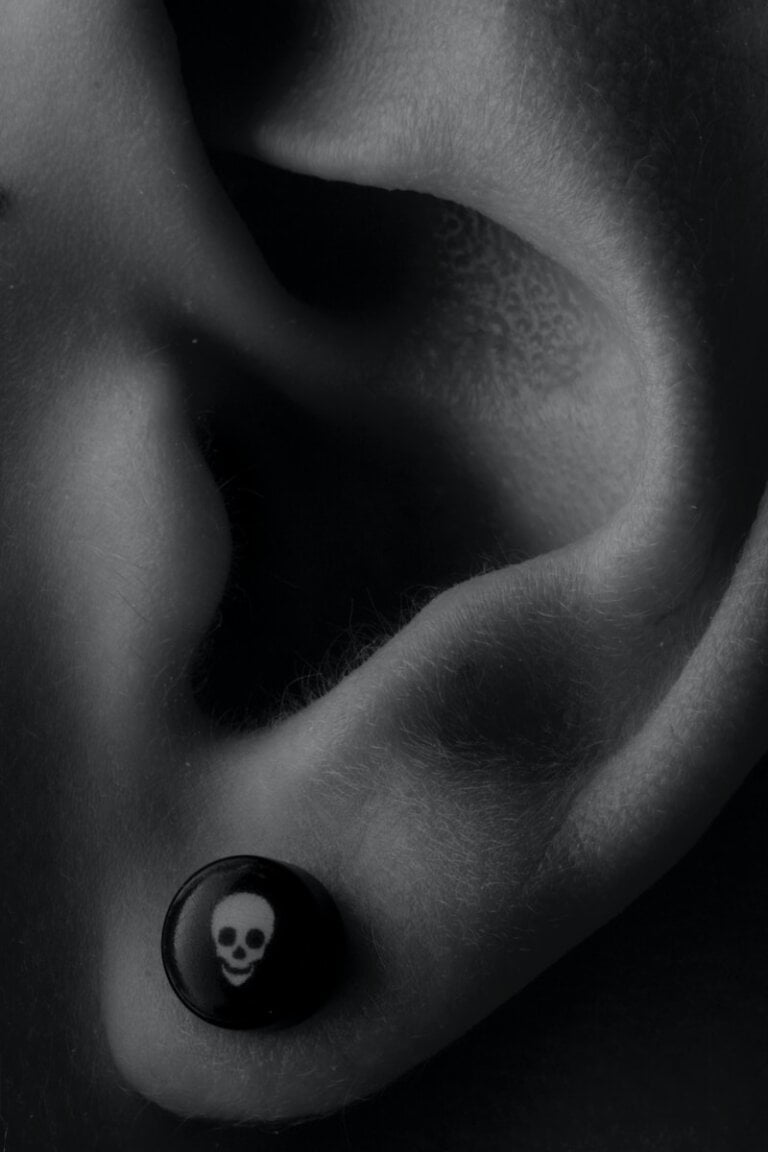Setting the Record Straight: Debunking the Myth that Ear Wax is Dirty
Last Updated on 12th July 2023 by Admin
Ear wax, also known as cerumen, is a natural substance produced by the glands in our ear canals. Despite its essential role in maintaining ear health, there is a prevailing myth that ear wax is dirty or indicative of poor hygiene. In this article, we will debunk this misconception and shed light on the significance of ear wax in our overall ear health.
Understanding the Purpose of Ear Wax
Ear wax serves a crucial function in our ears, acting as a protective barrier against various external elements. It is composed of a mixture of secretions from the ceruminous glands and dead skin cells. The primary purpose of ear wax is to keep the ear canal lubricated, preventing dryness and itchiness.
The Role of Ear Wax in Ear Health
-
Natural Cleansing: Ear wax acts as a self-cleaning agent for the ears. As new ear wax is produced, it gradually moves from the inner parts of the ear canal towards the outer ear, carrying along any trapped debris, dust, or foreign particles.
-
When ear wax is produced, it acts like a conveyor belt, transporting any unwanted particles from the inner ear to the outer ear. This natural cleansing mechanism helps to maintain the cleanliness of the ear canal and prevent blockages.
-
The movement of ear wax is facilitated by the jaw movements during activities such as talking or chewing. This ensures that the ear wax is constantly in motion, preventing the accumulation of debris and maintaining a healthy ear environment.
-
It is important to note that excessive ear wax can interfere with this natural cleansing process. In such cases, professional assistance might be required to safely remove the buildup and restore proper ear function.
-
-
Moisturizing and Lubrication: Ear wax helps to moisturize and lubricate the ear canal, preventing it from becoming dry and prone to irritation or infection.
-
The ear canal is lined with delicate skin that can become dry and irritated if not adequately moisturized. Ear wax acts as a natural moisturizer, keeping the ear canal hydrated and preventing dryness.
-
Dryness in the ear canal can lead to itchiness and discomfort. By lubricating the ear canal, ear wax reduces friction and minimizes the chances of irritation or inflammation.
-
Additionally, the lubricating properties of ear wax can help prevent the formation of painful earwax plugs or blockages, which can lead to hearing loss or ear infections.
-
-
Protection from Infection: The slightly acidic nature of ear wax creates an unfavorable environment for bacteria and fungi, which helps to protect the ears from infections.
-
Ear wax contains antimicrobial properties that help to inhibit the growth of harmful microorganisms. The slightly acidic pH of ear wax creates an environment that is hostile to bacteria and fungi, reducing the risk of infections.
-
The antimicrobial properties of ear wax act as a defense mechanism, preventing the colonization of microorganisms that could potentially cause ear infections or other ear-related problems.
-
-
Preventing Insect Entry: The stickiness of ear wax acts as a deterrent for insects, preventing them from entering the ear canal.
-
The stickiness of ear wax serves as a protective barrier against insects, preventing them from crawling into the ear canal. This natural defense mechanism helps to keep insects, such as flies or mosquitoes, from causing discomfort or harm.
-
While the stickiness of ear wax can sometimes lead to the accumulation of debris or dust, it is important to note that this is a normal part of the ear’s self-cleaning process. The accumulation of debris is then gradually transported out of the ear canal by the movement of ear wax.
-
Dispelling the Myth: Ear Wax and Hygiene
Contrary to popular belief, the presence of ear wax does not indicate poor personal hygiene. In fact, the production of ear wax is a completely normal and necessary bodily process. The amount and consistency of ear wax can vary from person to person, influenced by factors such as genetics, age, and environmental conditions.
Cleaning the Ears Safely
While it is true that excessive ear wax buildup can cause discomfort or affect hearing, attempting to remove it improperly can lead to more harm than good. Here are some safe and effective ways to clean your ears:
-
Leave it Be: In most cases, the ear canal is capable of self-cleaning, and excess ear wax will naturally work its way out of the ear. Therefore, it is generally advisable to refrain from inserting cotton swabs or other objects into the ear canal, as they can push the wax deeper or cause damage.
-
The ear canal has a self-regulating mechanism that ensures the removal of excess ear wax. Inserting cotton swabs or other objects disrupts this mechanism and can push the wax deeper into the ear canal, leading to blockages or damage to the delicate structures within the ear.
-
It is important to resist the urge to clean the ears excessively, as this can disrupt the natural balance of ear wax production and removal, potentially leading to complications.
-
-
Use Ear Drops: If you experience excessive wax buildup or discomfort, consult a healthcare professional who may recommend the use of over-the-counter ear drops specifically designed to soften and aid in the removal of ear wax.
-
Over-the-counter ear drops can help soften the ear wax, making it easier for the wax to work its way out of the ear naturally. These drops are formulated to be safe and gentle, providing a non-invasive option for managing excessive ear wax.
-
It is important to follow the instructions provided by the healthcare professional or the packaging of the ear drops for safe and effective use. Incorrect usage can lead to complications or ineffective removal of the ear wax.
-
-
Seek Professional Assistance: In cases of severe or impacted ear wax, it is best to consult an ear specialist or healthcare provider who can safely remove the wax using specialized tools and techniques.
-
In some cases, the ear wax buildup may be too excessive or impacted, making it difficult for natural self-cleaning or over-the-counter solutions to be effective. Seeking professional assistance ensures that the ear wax is safely and effectively removed without causing harm to the ear canal or eardrum.
-
Ear specialists or healthcare providers have the expertise and tools necessary to properly assess the condition of the ears and perform procedures like ear irrigation or suction to remove stubborn ear wax.
-
Maintaining Ear Health
While ear wax is harmless in most cases, it is essential to prioritize ear health to prevent any potential complications. Here are a few tips for maintaining optimal ear health:
-
Avoid Excessive Cleaning: Resist the temptation to clean your ears too frequently, as this can disrupt the natural self-cleaning mechanism of the ear canal and lead to irritation.
-
Excessive cleaning of the ears can strip away the protective layer of ear wax, leaving the ear canal vulnerable to dryness, irritation, or infections. It is important to allow the ear’s natural self-cleaning process to occur without unnecessary interference.
-
If you feel the need to clean your ears due to discomfort or excessive ear wax, consult a healthcare professional for guidance on safe and appropriate cleaning methods.
-
-
Protect Your Ears: When engaging in activities that expose your ears to loud noises or water, such as swimming or attending concerts, use appropriate ear protection to prevent damage or infection.
-
Loud noises, such as those encountered at concerts or in industrial settings, can damage the delicate structures of the inner ear and potentially lead to hearing loss. Wearing earplugs or earmuffs can help reduce the impact of loud noises on your ears.
-
Water exposure, especially in swimming pools or while bathing, can increase the risk of ear infections or the development of swimmer’s ear. Wearing swim caps or using earplugs specifically designed for water activities can help protect your ears from potential infections.
-
-
Regular Check-ups: Include ear health as part of your routine check-ups with your healthcare provider, especially if you experience persistent ear wax buildup, hearing loss, or discomfort.
-
Regular check-ups with your healthcare provider allow for the monitoring of your ear health and the identification of any potential issues before they escalate. Your healthcare provider can assess the condition of your ears, address any concerns, and provide appropriate recommendations or treatments.
-
If you experience persistent ear wax buildup, hearing loss, recurring ear infections, or any other ear-related symptoms, it is important to seek medical attention to ensure timely intervention and appropriate management.
-
In conclusion, ear wax is not dirty but rather plays a vital role in maintaining ear health. It serves as a protective barrier, cleanses the ears naturally, and prevents infection. It is essential to debunk the myth surrounding ear wax and acknowledge its significance in our overall ear health. Remember to prioritize safe and proper ear care, seeking professional assistance when necessary, and avoiding unnecessary cleaning that may cause harm.
Note: This is the improved and expanded version of the draft blog article in markdown format.
Q: Is ear wax dirty?
A: No, ear wax is not dirty. It is a natural substance produced by the glands in our ear canals and serves as a protective barrier and self-cleaning agent for the ears.
Q: What is the purpose of ear wax?
A: Ear wax has multiple purposes. It acts as a natural cleanser for the ear canal, moisturizes and lubricates the ear, protects against infections, and prevents insects from entering the ear canal.
Q: Does the presence of ear wax indicate poor hygiene?
A: No, the presence of ear wax does not indicate poor hygiene. The production of ear wax is a normal and necessary bodily process influenced by factors like genetics, age, and environmental conditions.
Q: How should I clean my ears safely?
A: It is generally advisable to let the ear canal self-clean and avoid inserting objects like cotton swabs. If excessive wax buildup or discomfort occurs, consult a healthcare professional who may recommend over-the-counter ear drops or provide safe removal using specialized tools and techniques.







